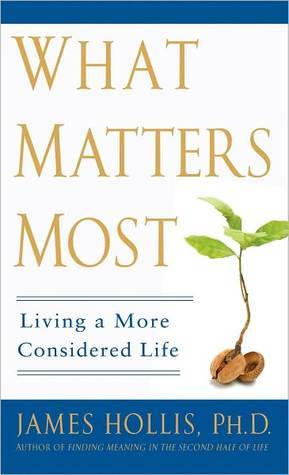More on this book
Community
Kindle Notes & Highlights
In short, the greatest gift of relationship proves to be that as the result of encountering each other, we are obliged to grow larger than we had planned.
How much each of us needs to remember theologian Paul Tillich’s definition of grace as accepting the fact that we are accepted, despite the fact that we are unacceptable.
I have no vested interest in our becoming saner, or mentally balanced, or even useful to society. If you, the reader, find a neurosis that works for you, and gifts others as a bonus, then ride it for all it’s worth. We are not here to fit in, be well balanced, or provide exempla for others. We are here to be eccentric, different, perhaps strange, perhaps merely to add our small piece, our little clunky, chunky selves, to the great mosaic of being.
Johannes Samuelsson liked this
Yes, there are multitudes of people running about and shouting the Truth, that is, their fractal purchase on subjective prejudice,
Ask yourself of every dilemma, every choice, every relationship, every commitment, or every failure to commit, “Does this choice diminish me, or enlarge me?”
Johannes Samuelsson liked this
As I have written elsewhere, the best way for women to understand the life of the typical man would be to imagine that they: 1) remove from themselves their closest friends, those with whom they share their deepest secrets, fears, hopes; 2) sever linkage to an internal guidance system, whether they call it their instincts, intuition, or feeling life; and 3) measure their worth predominantly through their capacity to attain external, abstract standards of productivity.
Generally we seek comfort over enlargement, reassurance over risk, and seldom venture out beyond the predictable. Our dilemma is not that we are capable of both so much evil and so much self-denial, but that we are capable of so much spiritual pettiness. It may prove a “terrible” thing to be summoned before the large, before the call of the numinous, but it is in those moments that we express our journey most fully.
“we walk in shoes too small for us,”
All of us have to ask this simple but piercing question of our relationships, our affiliations, our professions, our politics, and our theology: “Does this path, this choice, make me larger or smaller?”
“I will stay with it and endure though suffering hardship, and once the heaving sea has shaken my raft to pieces, then will I swim.”
The second half of life is a summons to the life of the spirit, namely, to ask, and answer for ourselves, uniquely, separately, what matters most.
The poet Rainer Maria Rilke said it best when he asserted that our task is to be defeated by ever-larger things.
To be defeated by ever-larger things is indeed our task, for that means that we are growing, growing, growing.
“I taught you to be more comfortable with your uncertainty .”
We are not here to be comfortable, although that is the banal blandishment offered by modern materialism, pop psychologies and theologies,36 and the sundry seductions of addiction and distraction.
Anyone with a modicum of consciousness is traumatized by this current world, with its move from instinctual guidance, sympathetic resonance with natural rhythms of seasons and death and rebirth, to “virtual” realities such as economics, data processing, and daily distractions no more evolved than the bread and circuses 53 through which the Roman emperors distracted their citizenry from their august, megalomaniacal depredations.
The bad news is that our psyche frequently beats up on us. The good news is that our psyche frequently beats up on us.
(It has become clear to me, for example, that aging itself does not bring wisdom. It often brings regression to childishness, dependency, and bitterness over lost opportunities. Only those who are still intellectually, emotionally, spiritually growing inherit the richness of aging.)
Has it become so terrible, as Jean-Paul Sartre predicted, to be free? Are we so spiritually diminished, so enervated, to suffer our crises of the soul in such trivializing fashion?
If materialism, hedonism, narcissism worked for us, really worked, we would know it by now.
I am, of course, using the word myth here in an honorific sense, namely, as an energy-charged image, or idea, that has the power to move and direct the soul, hopefully in ways that link us more deeply to the mysteries of the cosmos, of nature, of relationship, and of self.
Myth comes from below, from the unconscious, from the telluric gods, from the earth.
“Suffering is the fastest horse to completion.”


